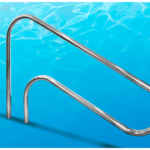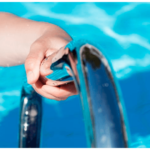Información actualizada April 5, 2024
Table of Contents
The Importance of Heat Pumps for Fiberglass Pools
Fiberglass pools offer a durable and low-maintenance experience, but maintaining a comfortable water temperature can be challenging. Heat pumps become essential to address this issue, providing precise and efficient control of the water temperature.
How Do Heat Pumps Work?
These ingenious devices extract heat from the surrounding air, even in cooler climates, and transfer it to the pool water. This process ensures consistent and efficient heating.
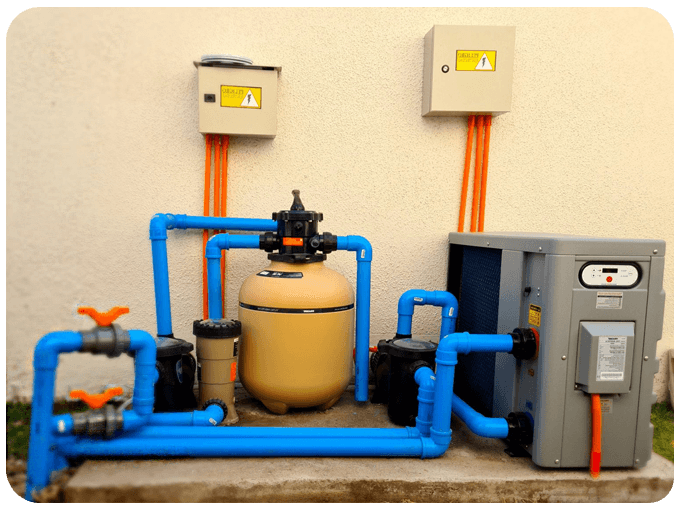
Benefits of Heat Pumps for Fiberglass Pools
A. Energy Efficiency
The efficiency of heat pumps is further highlighted in fiberglass pools. Thanks to their ability to operate optimally in different weather conditions, they offer exceptional energy performance.
B. Reduced Operating Costs
Compared to other heating options, heat pumps for fiberglass pools significantly reduce operating costs over time. This translates into substantial economic savings for pool owners.
C. Environmental Contribution
Choosing a heat pump for fiberglass pools is also an environmentally responsible choice. By relying on renewable energy sources, these pumps minimize carbon footprint and promote sustainable practices.
Factors to Consider When Buying a Heat Pump
A. Pool Size
The heat pump’s capacity must specifically match the water volume of fiberglass pools. Precise calculation ensures optimal performance and maximum energy efficiency.
B. Energy Efficiency
The efficiency of the heat pump is crucial, especially in fiberglass pools that can cool quickly. Opting for models with a high coefficient of performance (COP) ensures efficient heating.
C. Additional Features
Fiberglass pools can benefit from additional features such as scheduling and remote control, which enhance comfort and operational efficiency.
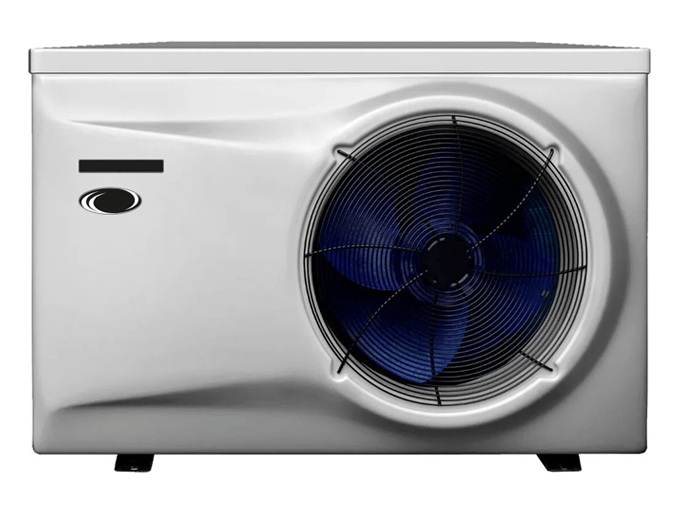
Installation and Maintenance
A. Installation Process
For fiberglass pools, precise installation is essential to ensure optimal performance. Hiring professionals familiar with the specific characteristics of these pools is highly recommended.
B. Maintenance Tips
Regular maintenance becomes even more crucial for heat pumps in fiberglass pools. Cleaning filters and checking components regularly extends their lifespan.
C. Common Troubleshooting
Knowing potential complications and how to address them specifically in fiberglass pools ensures continuous and efficient operation.
Comparison with Other Pool Heating Systems
A. Advantages over Traditional Systems
In fiberglass pools, heat pumps outperform boilers and gas heaters in efficiency and environmental compatibility.
B. Differences from Solar Heaters
Although solar heaters are sustainable, heat pumps offer more constant heating, independent of direct sunlight, which is beneficial for fiberglass pools in variable climates.
C. Comparative Efficiency with Other Heat Pumps
Current technology ensures that heat pumps for fiberglass pools offer superior performance and longer lifespan compared to other heat pumps.
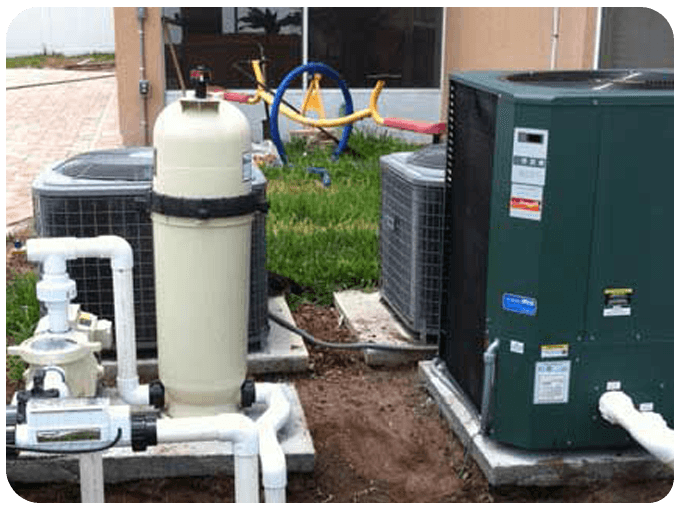
Success Stories
A. Positive User Experiences
Fiberglass pool owners share how heat pumps have improved the user experience and extended the swimming season.
B. Reviews and Testimonials
Specific opinions on heat pump models in fiberglass pools, providing valuable insights for future buyers.
Trends and Technological Advances
A. Innovations in Heat Pumps
Discover the latest technologies adapted to fiberglass pools, such as integration with automation systems and advanced connectivity options.
B. Future of Pool Heating
Explore possible improvements specific to fiberglass pools, such as more precise and efficient temperature management systems.
Tips for Maximizing Performance of Heat Pumps for Fiberglass Pools
A. Efficient Use of the Heat Pump
Tailored tips to ensure maximum performance in fiberglass pools, considering their faster cooling capacity.
B. Utilization of Programmable Functions
How to program the heat pump according to the unique needs of fiberglass pools and usage patterns.
C. Integration with Automation Systems
The specific advantages of connecting heat pumps to smart systems in fiberglass pools for more convenient control.
Environmental Considerations
A. Environmental Impact of Heat Pumps
A detailed analysis of the ecological impact of heat pumps in fiberglass pools and more environmentally friendly options.
B. Available Eco-Friendly Options
Specific brands and models that stand out for their commitment to environmentally friendly practices, ideal for fiberglass pools.
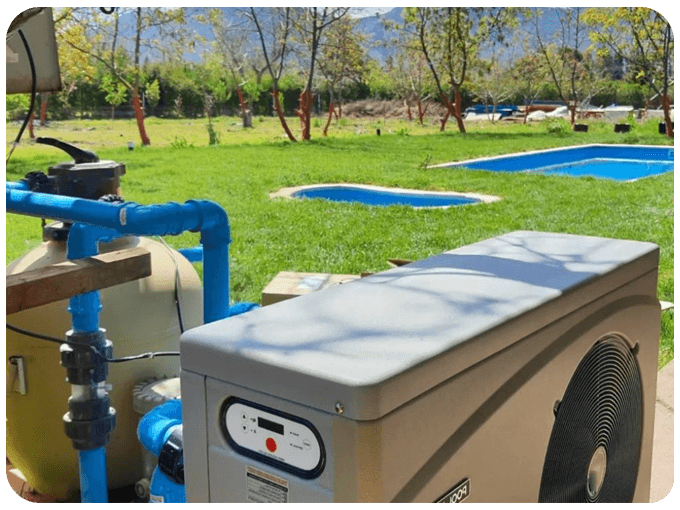
Common Questions about Heat Pumps for Fiberglass Pools
A. Are heat pumps suitable for all fiberglass pools?
Yes, heat pumps are versatile and adapt to most fiberglass pools, regardless of their size. However, it is crucial to select a heat pump with the appropriate capacity to ensure optimal performance.
B. How much can I save on energy costs with a heat pump?
Energy savings may vary, but many users report significant reductions in energy costs over time. Factors such as pool size, heat pump efficiency, and local weather conditions influence savings.
C. Does installing a heat pump require modifications to the pool?
Generally, no. The installation of heat pumps is usually non-invasive and does not require significant structural modifications. However, it is essential to follow the manufacturer’s recommendations, and in some cases, adjustments to the plumbing system may be necessary.
D. How do I know what size heat pump I need for my pool?
Determining the correct size of the heat pump depends on your pool’s water volume. Consulting with a pool heating professional will help you calculate the necessary capacity to maintain optimal temperature.
E. What is the typical lifespan of a heat pump for pools?
Lifespan varies, but with proper maintenance, many heat pumps can last more than 10 years. Performing recommended maintenance, such as filter cleaning and periodic component checks, contributes to a longer lifespan and continuous performance.

